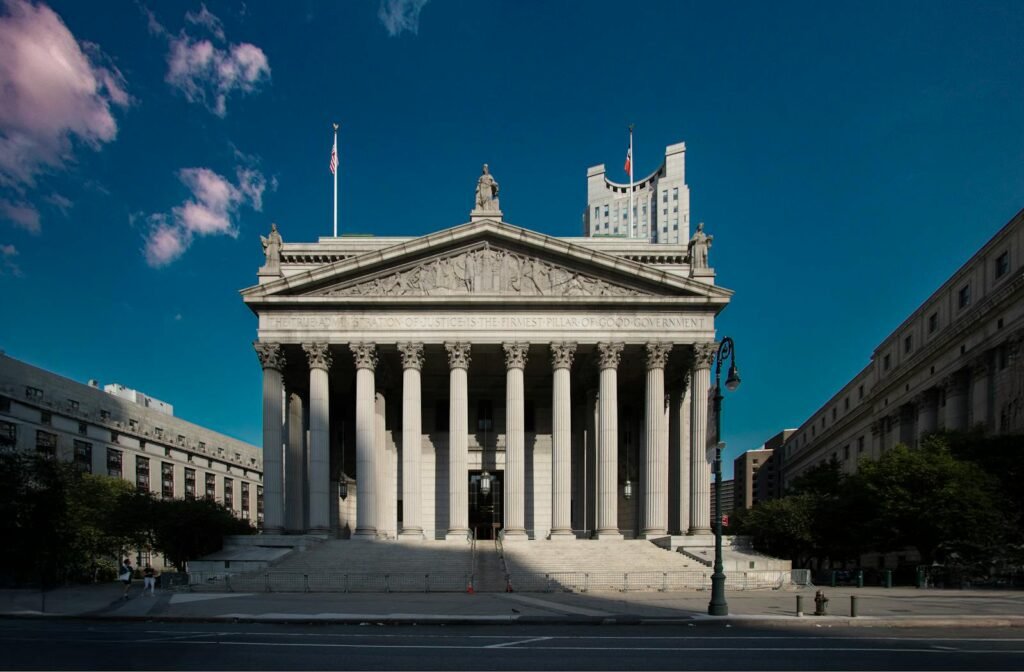
Judge strikes down core parts of Act 10 that stripped most public workers’ union rights
by Erik Gunn, Wisconsin Examiner
December 2, 2024
A Dane County judge on Monday struck down the core parts of the landmark state law that eviscerated most union rights for most public employees in Wisconsin.
Judge Jacob Frost ruled that Act 10, passed by the state Legislature’s Republican majority in 2011 and signed by former Republican Gov. Scott Walker in his first year in office, was unconstitutional in making some public safety workers exempt from the law’s limits on unions but excluding other workers with similar jobs from those protections.
The ruling essentially confirmed Frost’s ruling on July 3, 2024, when he rejected motions by the state Legislature’s Republican leaders to dismiss the 2023 lawsuit challenging Act 10.
In that ruling, Frost declared that state Capitol Police, University of Wisconsin Police, and state conservation wardens were “treated unequally with no rational basis for that difference” because they were not included in the exemption that Act 10 had created for other law enforcement and public safety employees.
For that reason, the law’s categories of general and public safety employees, and its public safety employee exemption, were unconstitutional, Frost wrote then.
Frost reiterated that ruling Monday. “Act 10 as written by the Legislature specifically and narrowly defines ‘public safety employee,’” Frost wrote. “It is that definition which is unconstitutional.”
In addition, the judge rejected the suggestion that Act 10 could remain in effect without the law’s public safety employee carve-out, and that either the courts or the Wisconsin Employment Relations Commission could resolve a constitutionally acceptable definition in the future.
“The Legislature cites no precedent for this bold argument that I should simply strike the unlawful definition but leave it to an agency and the courts to later define as they see fit,” Frost wrote. “Interpreting ‘public safety employee’ after striking the legislated definition would be an exercise in the absurd.”
Advocates, lawmakers react
Opponents of the law, including plaintiffs in the lawsuit, cheered Monday’s ruling, while Act 10’s backers attacked it and vowed to see it through the appeals process.
The lawsuit was brought on behalf of a group of local and state unions and public employees by the progressive nonprofit law firm Law Forward along with Bredhoff & Kaiser.
“This historic decision means that teachers, nurses, librarians and other public-sector workers across the state will once again have a voice in the workplace,” said Jeff Mandell, Law Forward president and general counsel. “Every Wisconsin family deserves the chance to build a better future through democratic participation in a union. As an organization dedicated to protecting and strengthening democracy, Law Forward is proud to have been a part of this important case.”
Assembly Speaker Robin Vos (R-Rochester), dismissed Monday’s ruling. Through its Republican leaders, the Legislature was among the defendants in the lawsuit.
“This lawsuit came more than a decade after Act 10 became law and after many courts rejected the same meritless legal challenges,” Vos said in a statement. “Act 10 has saved Wisconsin taxpayers more than $16 billion. We look forward to presenting our arguments on appeal.”
Gov. Tony Evers, who has sought to repeal Act 10 since he took office in 2019, applauded the ruling.
“This is great news,” Evers, a Democrat, said in a social media post on BlueSky and on X. “I’ve always believed workers should have a seat at the table in decisions that affect their daily lives and livelihoods. It’s about treating workers with dignity and respect and making sure no worker is treated differently because of their profession.”
Evers sought to repeal the law in each of the three state budgets he has submitted since taking office, but the Legislature’s Joint Finance Committee Republicans stripped those provisions each time.
Ben Gruber, a conservation warden and union leader, called the ruling “personal for me and my coworkers.” Gruber is one of the named plaintiffs in the lawsuit.
“As a conservation warden, having full collective bargaining rights means we will again have a voice on the job to improve our workplace and make sure that Wisconsin is a safe place for everyone,” he said in a statement distributed by the Wisconsin Education Association Council (WEAC).
Member local unions of WEAC were among the plaintiffs.
“The lawsuit was filed because of the dire situation that exists in Wisconsin’s public service institutions since workers’ freedoms were unconstitutionally taken away,” WEAC stated. “The state’s education workforce is in crisis as 40 percent of teachers leave the profession in the first six years because of low wages and unequal pay systems; the conservation warden program is fraught with unfair and disparate treatment of workers; and there is a 32 percent staff vacancy rate for corrections officers.”
Also joining in the lawsuit was the union representing University of Wisconsin graduate students who work as teaching assistants, TAA Local 3220.
“Graduate workers look forward to claiming our seat at the table to ensure our teaching and research, which helps make UW-Madison a world-class university, are supported and compensated fairly,” said TAA’s co-president, Daniel Levitin. “The winds of change are blowing in our direction and we urge the university to take note and voluntarily recognize the TAA as the union of graduate workers and be prepared to meet us at the bargaining table.”
TAA is affiliated with the American Federation of Teachers. “Workers must have the right to partner with their employer and negotiate fair wages, benefits, and working conditions,” said AFT-Wisconsin President Kim Kohlhaas.
Appeals expected
WEAC’s statement cautioned that the ruling’s impact would be delayed by appeals. “The plaintiffs acknowledge that while this decision is a major win for Wisconsin’s working families, it is likely that the case will remain in the courts for some time before a final victory is reached and pledge to continue fighting until the freedoms of all workers in Wisconsin are respected and protected,” the teachers union said.
Sen. Dianne Hesselbein (D-Middleton) was first elected to the Legislature the year after the law was passed and now leads the Democratic minority in the state Senate.
“This is a crucial step to recognize and restore the rights of hard-working public employees doing the people’s work in every corner of Wisconsin,” Hesselbein said in a statement. “There are likely further hurdles ahead and I applaud the resolve of those who have kept up the effort to restore the right to collectively bargain in the state.”
State Rep. Ryan Clancy (D-Milwaukee) was a Milwaukee Public Schools teacher when the law was enacted.
“I saw firsthand the negative impact that the lack of collective bargaining had not only on our profession of teaching but also the schools, students, and our communities,” Clancy said in a statement. He called Monday’s ruling “a crucial step to ensuring that every Wisconsin worker has access to fair and equitable working conditions.”
Sen. Rachael Cabral-Guevera (R-Fox Crossing), was among the GOP lawmakers decrying the decision, declaring that the law had saved taxpayers $30 billion — nearly twice the figure Vos asserted.
“Today, an activist Dane County judge overstepped his role and unilaterally struck down Act 10 because it didn’t align with his politics,” she said in a statement. “One judge, appointed by the current governor, acting like a super-legislature is about to bankrupt local governments and school districts across Wisconsin.”
Kurt Bauer, president of Wisconsin Manufacturers & Commerce, the state’s largest business lobby and among the groups that had championed the legislation, called the ruling “wrong on its face and … inconsistent with the law” in a statement Monday that called Act 10 “a critical tool for policymakers and elected officials to balance budgets and find taxpayer savings.”
He said the business lobby’s members “hope this ruling will be appealed and that Act 10 will be reinstated as quickly as possible.”
This story has been updated with reactions to the ruling.
2023-CV003152_DOR11815507GET THE MORNING HEADLINES.
Wisconsin Examiner is part of States Newsroom, a nonprofit news network supported by grants and a coalition of donors as a 501c(3) public charity. Wisconsin Examiner maintains editorial independence. Contact Editor Ruth Conniff for questions: info@wisconsinexaminer.com. Follow Wisconsin Examiner on Facebook and X.



